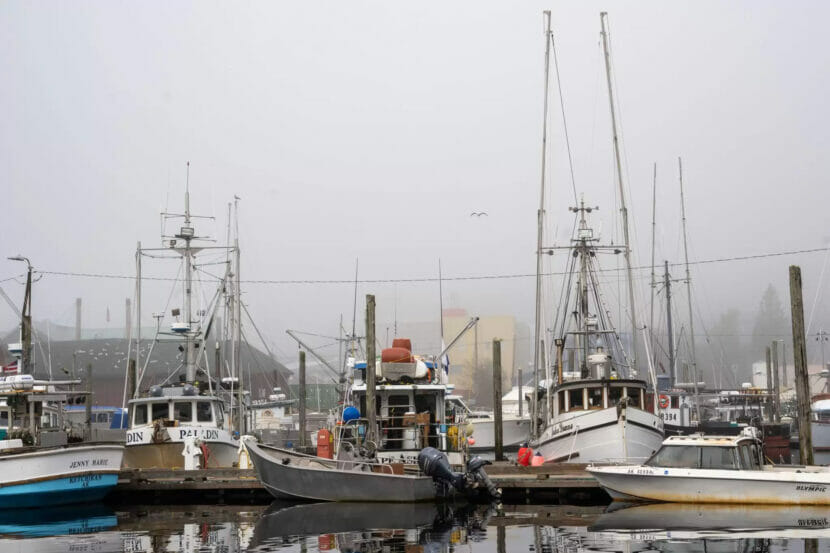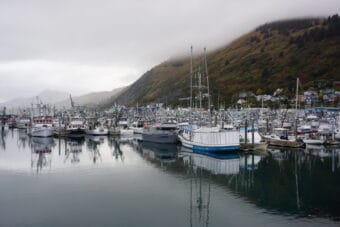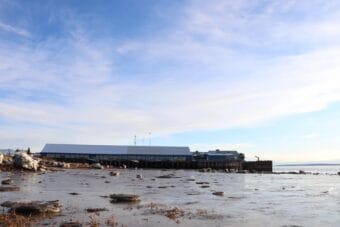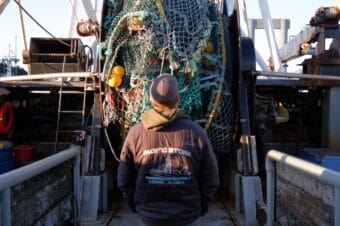
Local governments around Southeast Alaska are speaking out against a lawsuit that threatens to shut down trolling for king salmon across the region this year. The lawsuit aims to protect an endangered population of orcas in Washington state.
Ketchikan, Wrangell and Petersburg are set to join a growing chorus of Alaska voices highlighting the impact the suit could have on the region’s fishing fleet.
The lawsuit from the Washington state-based Wild Fish Conservancy centers on an endangered Puget Sound population of orcas known as Southern Resident killer whales.
Killer whales eat salmon — especially big, meaty king salmon — and the conservation group argues federal officials haven’t properly accounted for the impact the Southeast king salmon fishery has on the Puget Sound orcas.
Late last year, a federal judge issued a report that threatens to close the Southeast king salmon fishery until the National Marine Fisheries Service comes up with a fix.
So right now, the region’s 1,800 trollers are facing an uncertain future, says Alaska Trollers Association Executive Director Amy Daugherty.
“Our fleet is basically waiting to hear if they can gear up,” she said in a phone interview Friday.
The winter king salmon fishery is currently underway. The summer king fishery typically opens July 1. She says king salmon trolling is a $29 million chunk of the economy — and almost three times as much when you consider related economic activity like fish processors.
Gov. Mike Dunleavy said on Talk of Alaska last month that the state would fight the pending ruling if necessary. Sitka’s local government also adopted a resolution opposing the lawsuit.
And later this month, borough assemblies in Ketchikan, Wrangell and Petersburg will consider adopting resolutions of their own opposing a chinook shutdown.
Ketchikan Gateway Borough Assembly member Glen Thompson is co-sponsoring one of the measures.
“It’s urgent for the borough to at least take a political stand saying we oppose the shutdown of our troll industry, and we need to work through this and resolve the issue,” Thompson said by phone Friday.
He says a chinook shutdown would have ripple effects throughout the fleet — and the region’s economy.
“That’s the one that kind of drives everything else. That’s the money fish. That’s the headliner,” Thompson said. “If you shut down the chinook fishery, it really has a major impact on all the troll fisheries as well.”
Fellow Ketchikan co-sponsor Austin Otos says the suit unfairly targets the Alaska fishing fleet. In a statement, Otos says the outside group has “little to no knowledge about how Alaska manages (its) state fisheries.” He says trolling is “sustainable” and “has little impact on Puget Sound fisheries.”
“Troll permitted Chinook catch through the (U.S.-Canada) salmon treaty has declined over the past years, and completely closing it due to killer whale populations in the Lower 48 would decimate our local economy,” Otos wrote.
Fishermen, processors, local governments and community members all over Southeast are pitching in cash to help the Alaska Trollers Association in the fight. Daugherty says Sitka, Petersburg, Pelican, Port Alexander and Craig have collectively contributed thousands, and Sitka’s assembly is considering another $25,000 contribution.
“We are doing everything we can to keep our fishery viable and our fishermen on the water. We realize the importance to the small Southeast economies and the families,” Daugherty said. “Trolling is a small-boat fishery, a low-impact, hook-and-line, one-fish-at-a-time, and we’re very respectful of the habitat and the environment.”
Ketchikan isn’t currently considering a financial contribution of its own, but assembly members Otos and Thompson say they’re open to the idea.
Assemblies in Ketchikan and Petersburg are scheduled to vote on their measures on Monday. Wrangell’s assembly will consider the resolution on Feb. 14.
Ketchikan’s Borough Assembly meets at 5:30 p.m. Monday in the White Cliff Building on First Avenue. The full agenda is available online. The meeting is broadcast on local cable channels and the borough’s website.
CoastAlaska’s Angela Denning contributed reporting


